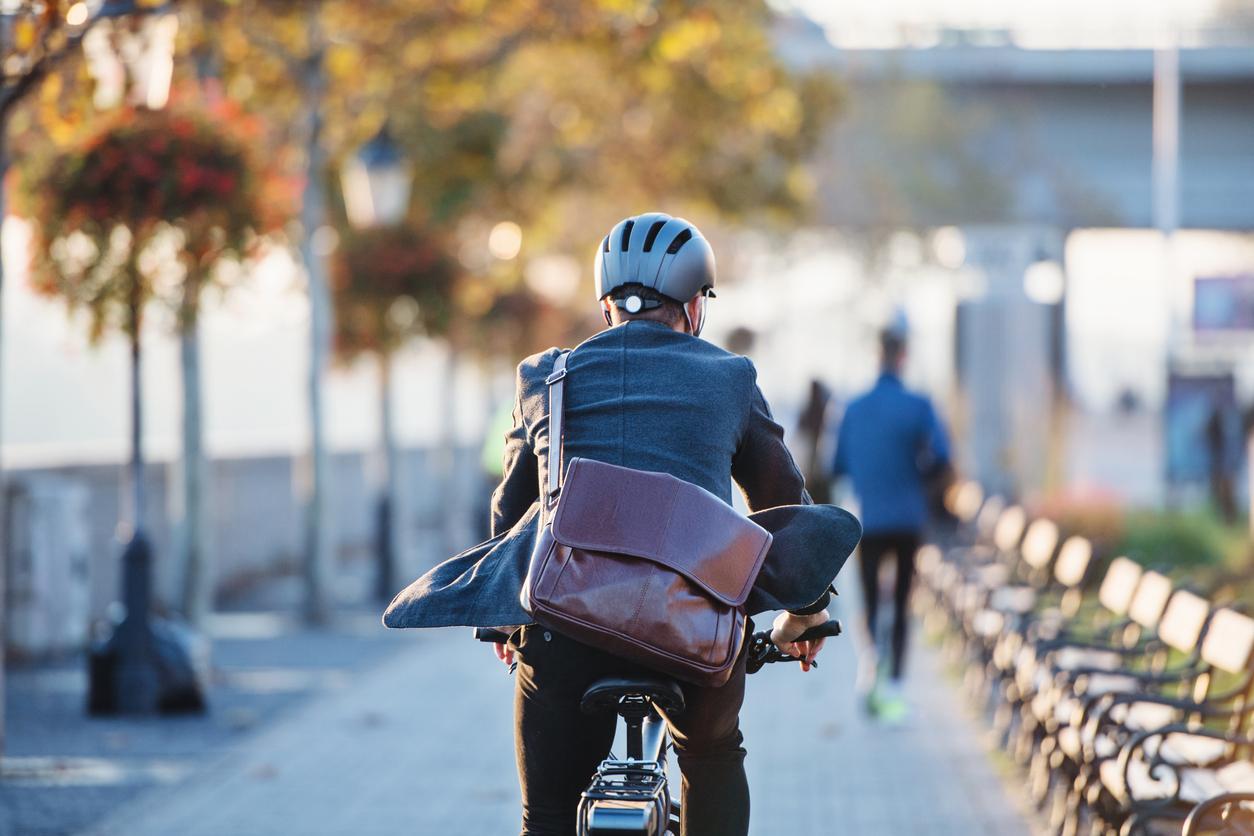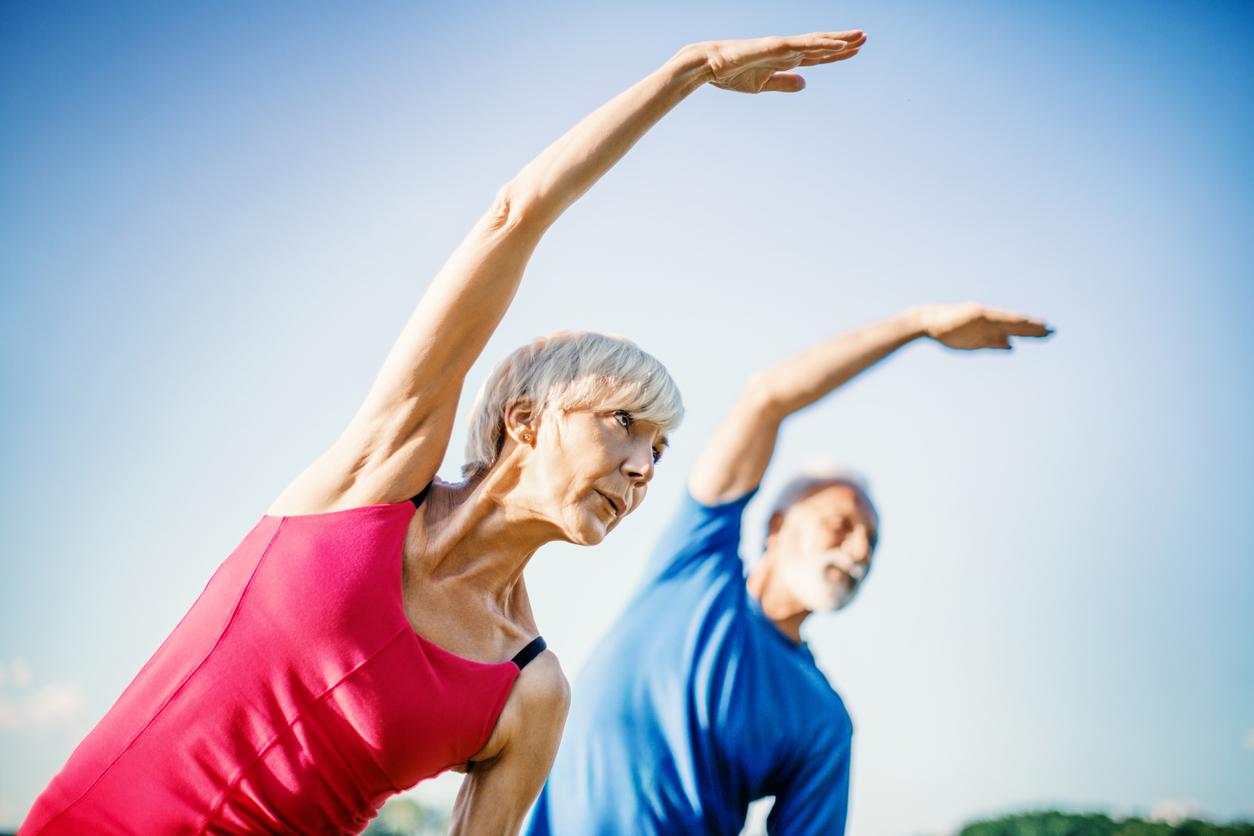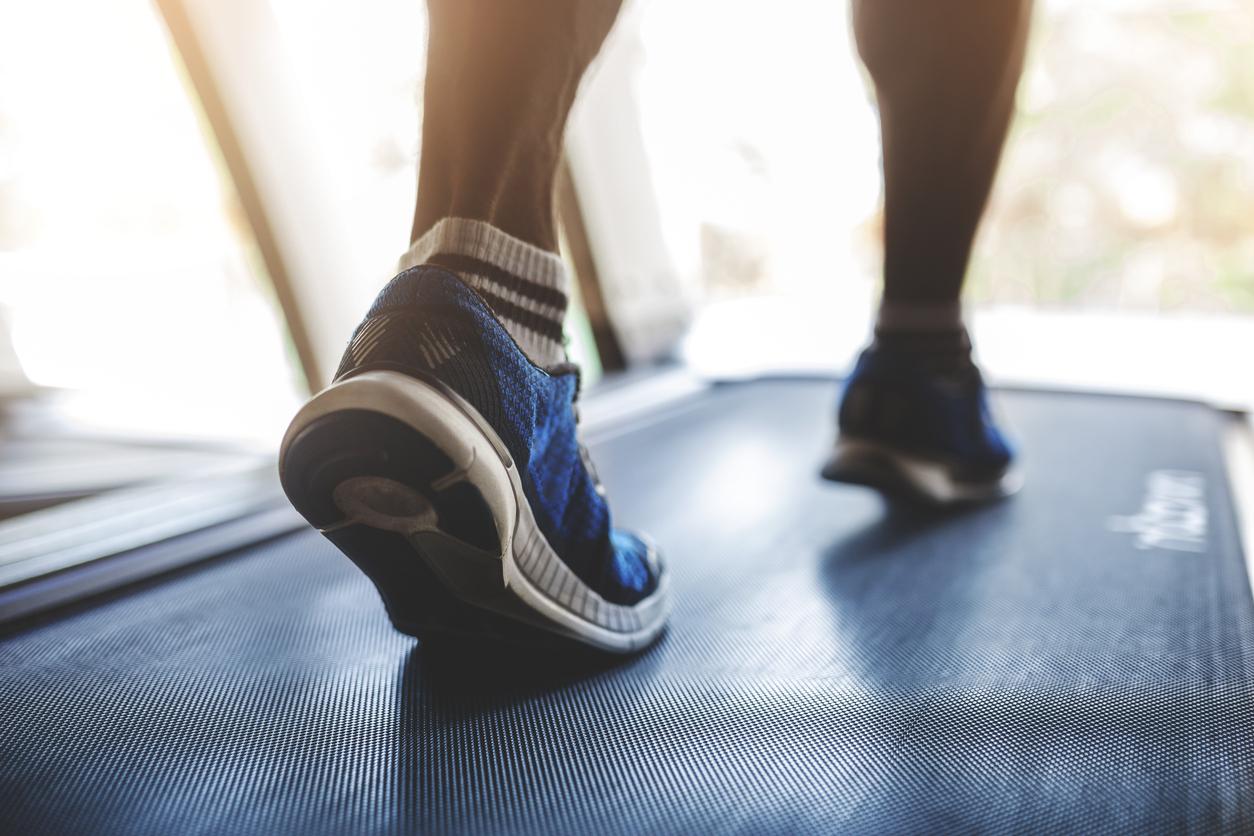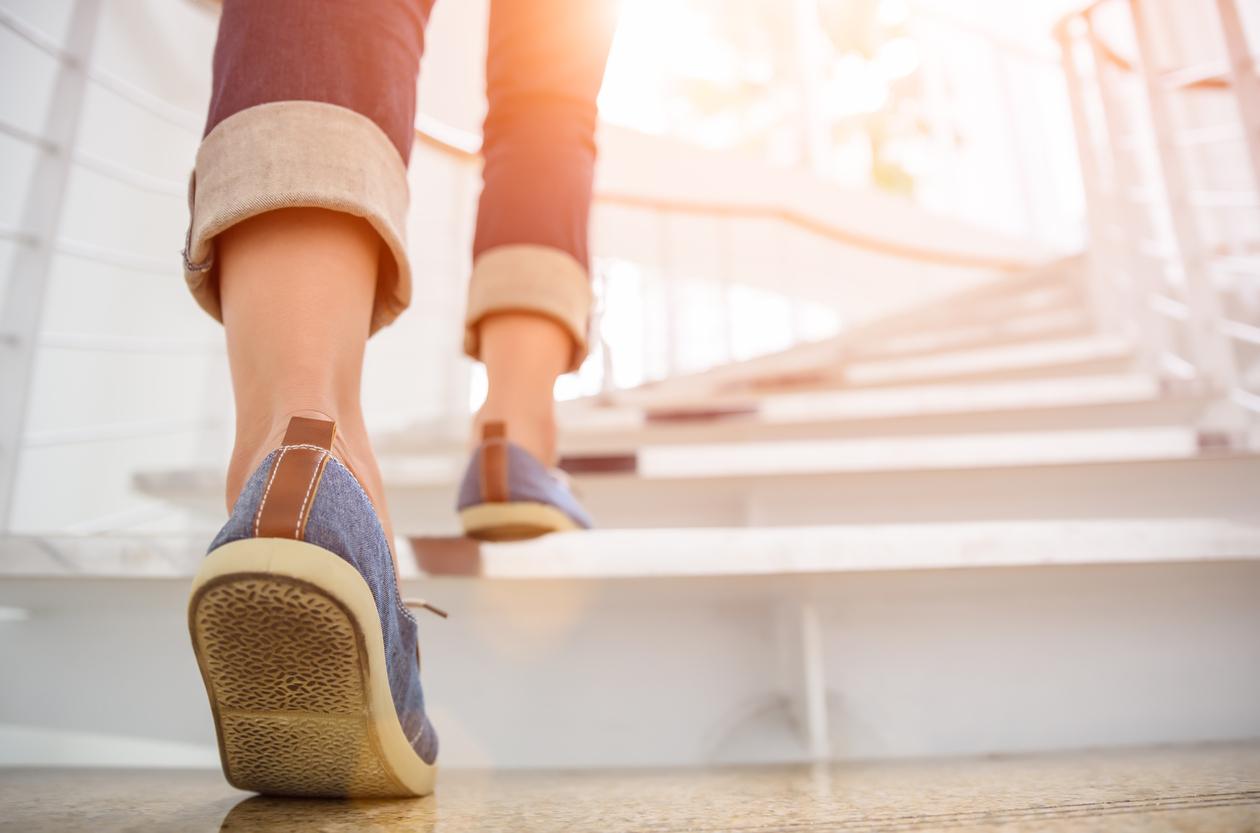Walking for a few minutes or climbing stairs boosts creativity according to a meta-analysis.
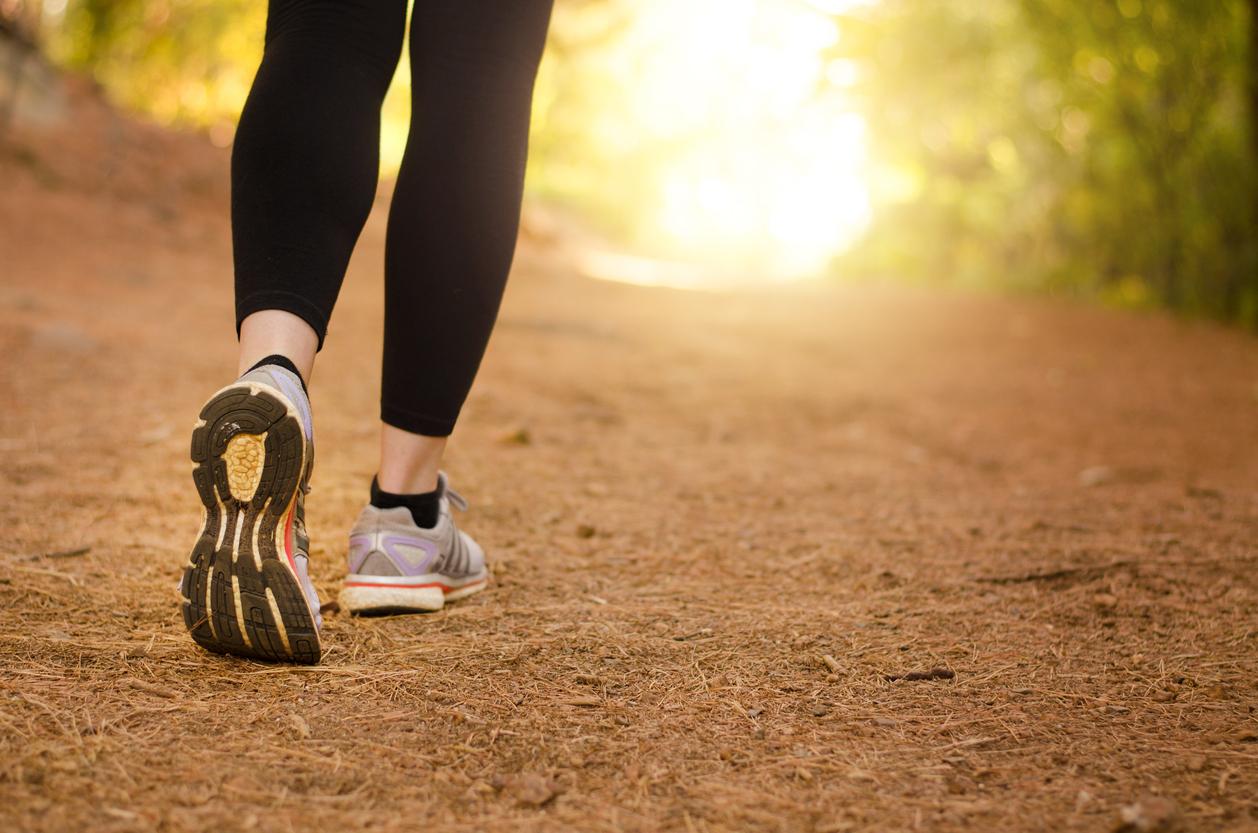
- Climbing stairs helps boost creativity, according to a new meta-analysis.
- All types of physical activity seem beneficial: dancing, running, cycling or yoga, walking for a few minutes…
- Dr. Chong Chen recommends implementing short active breaks in schools or businesses to encourage creative thoughts.
Do you have a letter to write or a file to finish and you have no inspiration? Move… and the ideas will come by themselves. This is what Dr. Chong Chen, assistant professor in the department of neuroscience at Yamaguchi University in Japan, assures in his study published in the journal Discover Psychology.
Physical activity: climbing a few steps helps you find your muse
To take stock of the impact of physical activity on creativity, the Japanese specialist took stock of all the 21 research studies carried out on the issue. One of them was his own work, carried out in 2022. He had examined the effects of climbing four flights of stairs, an activity that took only a few minutes. The analysis of all of this data allowed him to draw a conclusion which he entrusted to the British newspaper The Guardian : “even a single brief bout of exercise can ignite creative thinking.”
And climbing stairs is not the only way to find inspiration: dancing, running, cycling or even walking for a few minutes have had a beneficial effect on creativity.
Amir-Homayoun Javadi from the University of Kent, who also works on the beneficial effects of physical activity on the brain, explained to the British newspaper: “When performed regularly, physical activity can trigger structural changes, such as an increase in brain volume, particularly the hippocampus, which benefits many aspects of cognition, such as working memory , attentional control and information processing. This gives the brain more potential to be creative.” He then added: “that’s why you sometimes find that you have a great idea or solution after a walk or run, even if you weren’t consciously thinking about it.”
Active breaks from school and work?
The various studies carried out on the links between inspiration and physical activity show that moving above all helps fuel divergent thinking. That is, the thought process used to produce creative ideas by considering many possible solutions. In other words: think outside the box.
Although there is still much to discover about the most effective mechanisms or exercises, researchers believe that the benefits of physical activity should be better exploited.
Dr Chong Chen said: “Short active breaks in schools and the workplace can reinvigorate people’s creativity and problem solving. And for those who find the concept of “fitness” too difficult. Knowing that a few minutes of walking, or another low-intensity physical activity, can improve creative thinking, it should make getting up to move seem more interesting.”









